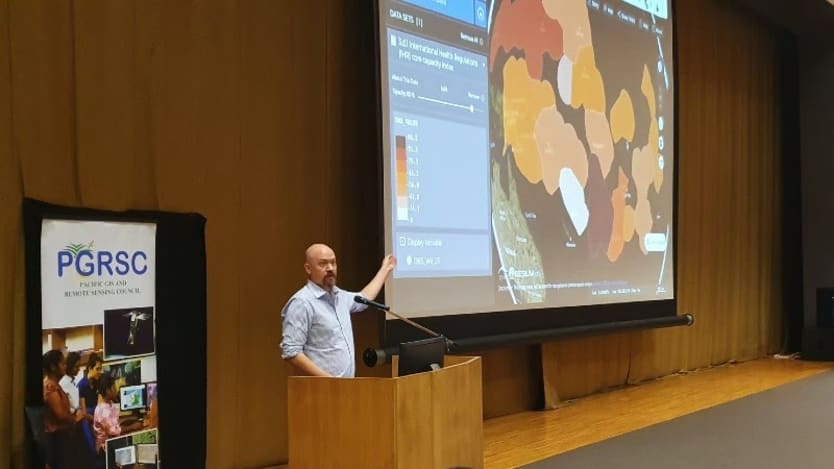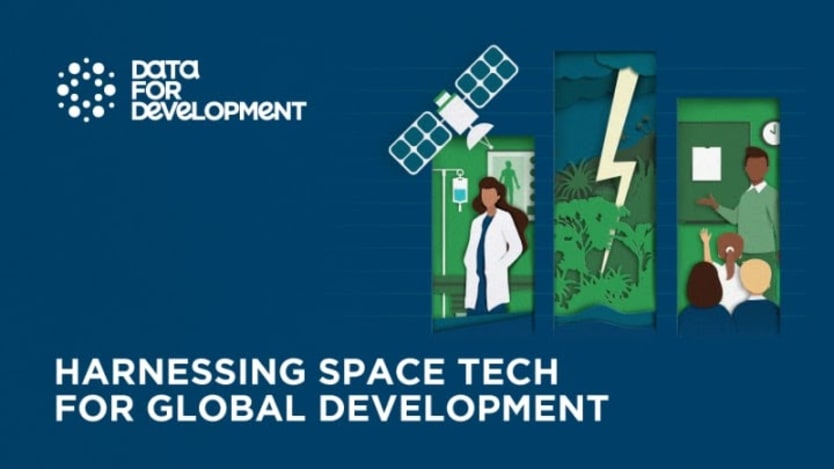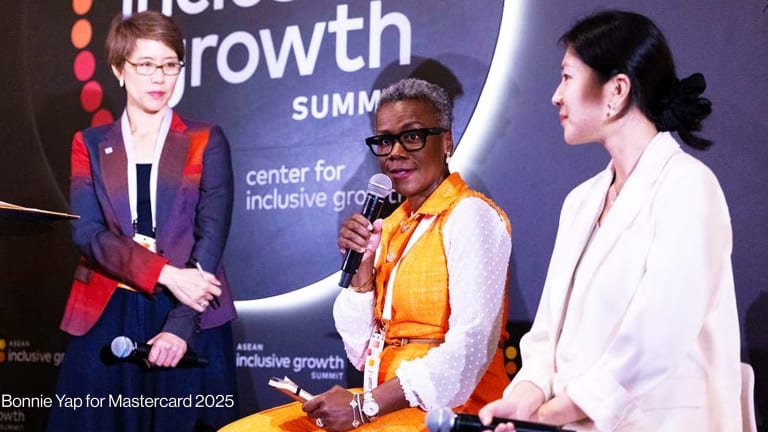
CANBERRA — The Pacific Data Hub was launched at the beginning of December and is already providing access to more than 5,000 data sets from 78 organizations. The data sets support the priorities of Pacific countries and include data, reports, and research sharing knowledge on the impact of climate change, economic development, health, education, and more.
Its launch is just the beginning. The hub, managed by the Pacific Community, will expand the data available over the coming years along with the user base, partners supporting the development of the platform, and the use of this open data to drive decision-making and progress monitoring in the Pacific.
For Stuart Minchin, director general at the Pacific Community, an online data hub is a modern approach to traditional Pacific knowledge sharing.
“Pacifc people have been sharing data for hundreds of years,” he said. “They’ve been sharing how to navigate, how to find each other’s islands, and sharing that openly so that trade and commerce could occur.”
Building a collaborative Pacific
While officially launched this month, the data hub has been utilized to access data critical to emergency response and preparedness since early in 2020.
More from the region:
► COVID-19 is just part of the story for NGOs in the Pacific
► 'Statistics that can and will be used': Pacific Islands devise new gender data plans
► Opinion: Why the Pacific needs a new approach to disaster recovery
“The establishment of the Pacific Data Hub was … very timely,” Sioeli Tonga, lead solutions architect with the Pacific Community, explained at the launch. “Having our platform in place and under development when the COVID pandemic hit meant that we were already able to provide a basis for a pandemic data monitoring platform with data being sourced across the region.”
In the past, he said, statistical and scientific data sets had been hard to find and access. That was now changing, with the Pacific Community planning to use its “relationships and convening power” to unlock access to comprehensive data from the region.
The next phase of development will work closely with people identified as data champions across the region, acting as data custodians and users. The hub will be locally owned and supported by data champions in member countries, Tonga explained, with standards for data and systems to enable interoperability.
“But importantly, we are responding to the local data needs of our members, to be able to respond effectively to disruptive forces and complex challenges that our members are facing today.”
A Pacific-focused data culture is important to this — which Tonga thinks of as an evolving approach.
“It’s not enough to say ‘we are following best practice and we are learning lessons from other regions.’ We do actually have to look at how this is applicable to our people, and to our countries —- because they are all different. This is a huge challenge. We have 22 Pacific Island countries and territories we are trying to engage with to open up data for reuse.”
Filling the gaps in data
Despite thousands of data sets included in the hub, interactive tools including those monitoring progress against the Sustainable Development Goals show that data gaps that remain. These data gaps can impact social and economic development for Pacific countries, risk leaving vulnerable communities behind, and risk being unable to show progress against the goals.
But there is currently no roadmap supporting the Pacific Data Hub that helps identify and prioritise high value data sets.
“The Pacific Data Hub is an infrastructure for sharing data sets and making them available — it is not creating the data itself,” Minchin told Devex. “That said, this is an ongoing challenge. We do have to keep investing in collecting the data that will populate the data hub and will give us the sorts of insights needed.”
A call to partners
While the Pacific countries will be driving data development to help fill the gaps, external partnerships were also needed to support the continued development of the platform that would enable high-quality data to be delivered and consumed — sustainably.
“We’ve seen the impacts of natural disasters, technical failure, and unsustainable funding models can have on the availability of data,” Tonga warned.
New Zealand’s Ministry of Foreign Affairs and Trade provided funding for the data platform. Belinda Brown, spokesperson for the Ministry of Foreign Affairs and Consul-General in New Caledonia, explained that this was in part due to the vision, the potential, and the opportunity it provided — including opportunities for funders.
“You’re always struggling to find good, reliable data,” she said. New Zealand in particular wanted to know how its money was being spent and data enabled people to provide evidence of impact.
Other partners were providing technical knowledge and support to make the most out of the available data — and Minchin urged other funders to get on board.
“If you do this, we can explore together the richness of the data that is already being shared, and you can work with us to unlock the value that it contains for the benefit of all Pacific peoples,” he said.
Visit the Data for Development series for more coverage on practical ways that satellite data can be harnessed to support the work of development professionals and aid workers. You can join the conversation using the hashtag #DataForDev.









